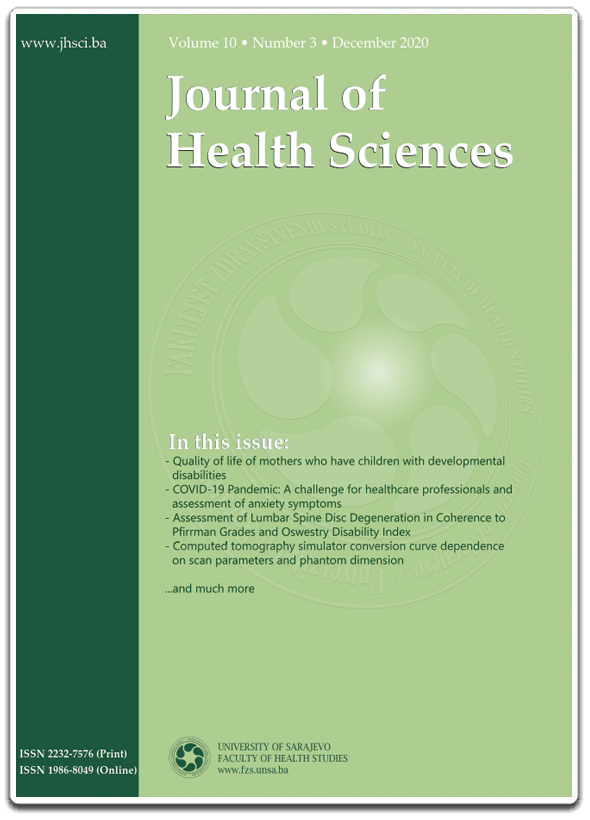Long-term effect of Prolotherapy on symptomatic rotator cuff tendinopathy
DOI:
https://doi.org/10.17532/jhsci.2016.257Keywords:
rotator cuff tendinopathy, prolotherapy, hyperosmolar dextrose therapy, SPADI, VASAbstract
Introduction: The objective of this study was to assess a long-term clinical effect of Prolotherapy on chronic symptomatic rotator cuff tendinopathy.
Methods: We conducted a retrospective, uncontrolled study in the outpatient setting with 12 months follow-up. Adults diagnosed clinically and radiologically with rotator cuff tendinopathy that has been persisting for a minimum of six months were included. Patients received 15% extra-articular and 25% intra-articular hyperosmolar dextrose injections, repeated at weeks 5, 9, 13, 17 and 21. Primary outcome measure was validated Shoulder Pain and Disability Index (SPADI). Secondary outcome measure was validated visual pain analogue scale (VAS 0-10). The third outcome measures were patient’s satisfaction with Prolotherapy and adverse reactions after injections.
Results: Twenty-one patients, 14 male and 7 female were treated with 6 sessions of hyperosmolar dextrose Prolotherapy repeated every 4 weeks. Average SPADI before starting the treatment was 73.995 ± 13.6, while 12 months after completed treatment was 20.84 ± 26.03 (P< 0.0001). Average VAS score before starting the treatment was 8.14 ± 1.2, while 12 months after completed treatment was 2.29 ± 2.8 (P<0.0001). Out of 21 patients, 18 (85.71%) would recommend Prolotherapy to other people with the similar condition, and no one participant reported any side effect that was not resolved within one week after the treatment.
Conclusion: Hyperosmolar dextrose Prolotherapy may result in significant reduction of pain and disability index in adult patients with chronic rotator cuff tendinopathy, without eliciting long-lasting side effects. Results of this pilot study need to be validated in prospective controlled randomized trials.










